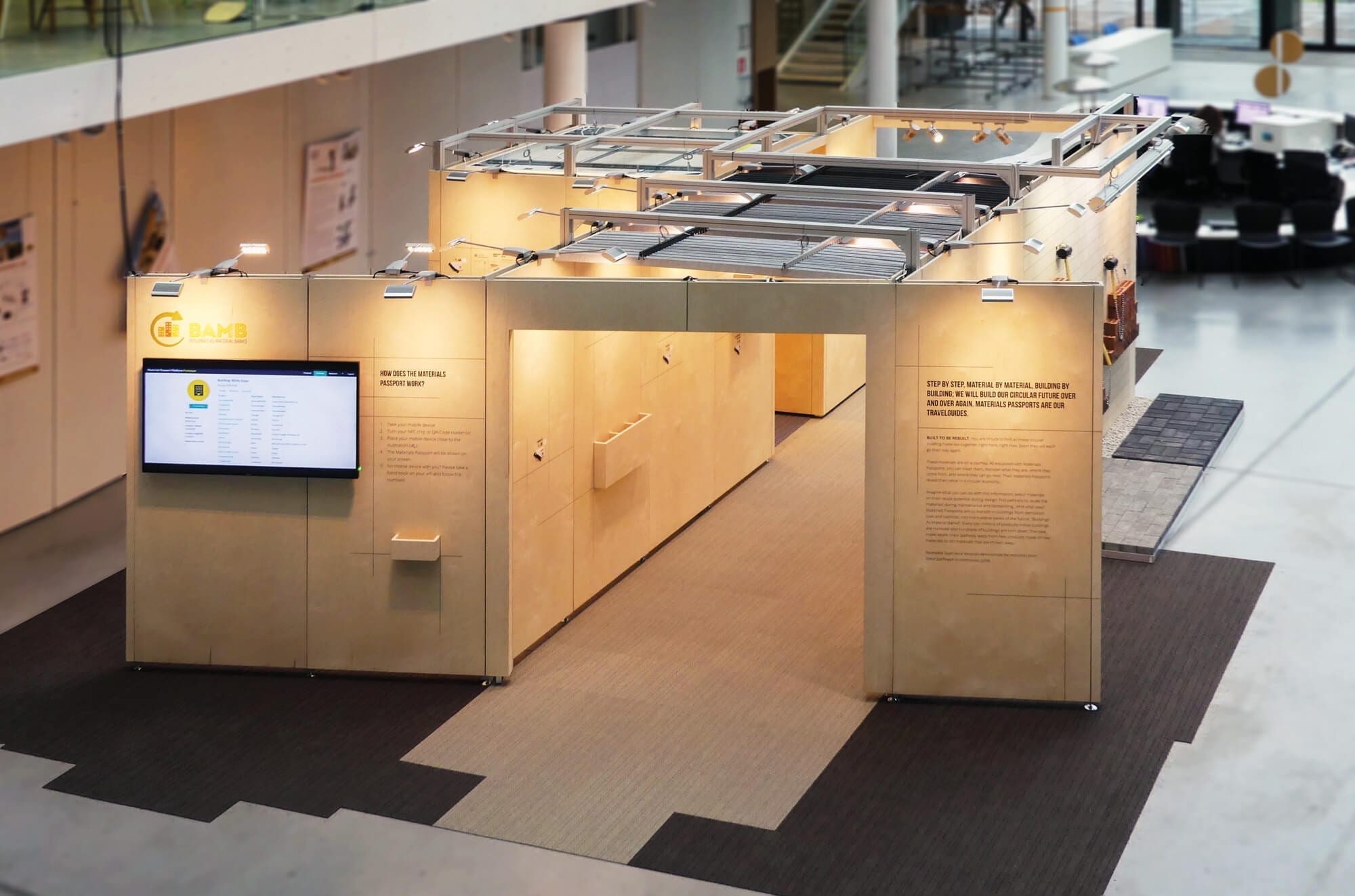Buildings as Material Banks: Towards a Low-Carbon Capital Region
The Brussels Region is not a territorial entity that can exploit massive larger sources of renewable energy such as wind or solar power. The optimal solution towards sustainability is to follow an ambitious policy aimed at improving the energy performance and environmental impact of buildings. In this context, Brussels Environment, the regional administration of the environment and energy, is at the helm of an EU-funded innovation project, called ‘Buildings as Material Banks’ (BAMB), and is preparing a “Low-Carbon Strategy” that will be advanced at a forum to be held in Brussels on 22 June 2018.
A Circular Economy Vision
To consider buildings as “Material Banks” is to see them as repositories for or stockpiles of valuable, high quality materials that can easily be taken apart and recovered. By harvesting materials and individual components during the deconstruction and renovation of buildings, these materials can be reused in the construction, operation or refurbishment of other buildings, thus reducing waste and primary resource use.
The term ‘Buildings as Material Banks’ refers to a materialized investment; it implies much more than investing money in property funds: the building itself is considered as a materialized savings account for material resources, through which building materials, products and components are temporarily ‘deposited’ into a functional element or part of the building. When socio-economic conditions are favourable, (a part of) the materials, products and components may be retrieved for other investments, such as another building or another high-quality application.
Seeing material resources as a temporary way of materializing investments opens the door to a wide range of circular business models in which economic and environmental value is conserved and created through the reuse of materials, products, components and buildings, while (performance-based) services are provided to support the daily life of (end) users.
Introducing the One-Stop-Shop
A powerful new tool for materials banking across Europe was launched at the end of 2017. This new BAMB Material Passports Platform fills a gap in the marketplace by providing a ‘one-stop-shop’ to describe circular economy values across the building cycle, especially for using and re-using components and materials, and reducing the generation of waste. The main goal is to support the transition of the building industry from a linear economy to a circular one by letting users identify value potential throughout the building cycle, from planning and construction through occupancy, repairs, renovations, repurposing and decommissioning, and by making it possible to track component and material quality and modifications.
The platform also connects individual products to their use in buildings, and it includes an option to describe the health status of materials. A large body of studies suggests that healthier buildings improve productivity, which is one of the main economic benefits of knowing what is in your building.
An Interactive & Itinerant Exhibition
In January 2018, BAMB launched the largest travelling exhibition of circularity in the built environment: the Reversible Experience Modules (REMs) exhibition consists of more An Interactive & Itinerant Exhibition In January 2018, BAMB launched the largest travelling exhibition of circularity in the built environment: the Reversible Experience Modules (REMs) exhibition consists of more than 70 building materials and products, all optimized for healthy use and reuse. Together, they form an exhibition space that resembles parts of actual buildings, with a hallway, an office area, a home area and an outside area. Visitors use the Materials Passports to dismantle and rebuild parts of the exhibition themselves. They experience the benefits of building for reuse and see what Material Passports can make possible.
Material Passports record and reveal the often- hidden potential for re-use and the future value of products and materials. In the REMs exhibition, all showcased products and materials will be represented in the BAMB Material Passports Platform. The platform can be accessed in an interactive way at the exhibition. In January 2018, the REMs exhibition started its year-long road trip. The exhibition of circular building materials will be built and rebuilt 6 times and go to 6 locations in one year. More information and the REMs travelling schedule is available at www.epea.nl/rems.

Circular Building Assessment (CBA)
In the second half of 2018, BAMB will test an integrated assessment web-based Circular Building Assessment (CBA) tool on building projects in the Brussels Capital Region and beyond. The objective of this tool is to help decision-makers, such as architects and their clients, understand the benefits that could be derived when modelling circular building scenarios versus the linear, or ‘business as usual’, equivalents. The assessment encompasses environmental and economic aspects, alongside social and health indicators where data provision makes this possible.
The underpinning methodology has been tested manually at both building and system levels using existing buildings in Brussels and the UK, and with a new concept of a building demonstrating high reuse potential and transformation capacity in the Netherlands. These examples show that are quantifiable carbon benefits from the adoption of circular building scenarios when compared to the usual situation. More examples, across a wider set of building types and countries, will be available by the end of 2018 as the second stage of testing is completed. This second testing phase will use the CBA prototype tool and there may still be opportunities for readers of this article to get involved and volunteer a project for assessment.